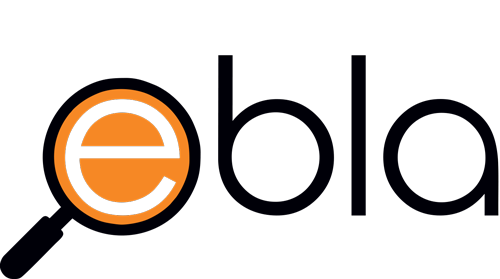In the high-stakes arena of job interviews, preparation is key to success. While every interview is unique, certain questions tend to recur across different industries and roles. Mastering the art of responding to these common questions with confidence and clarity can significantly enhance your chances of impressing potential employers. In this article, we’ll explore 10 of the most common interview questions and provide strategies and examples to help you craft compelling responses.
- Tell me about yourself.
This seemingly innocuous question often serves as the opening gambit in interviews, yet it can catch many candidates off guard. The key to answering effectively lies in striking a balance between brevity and relevance. Avoid reciting your entire life story; instead, focus on highlighting key aspects of your professional journey that are directly relevant to the role you’re applying for. Start with a brief overview of your background, highlighting your education, relevant work experience, and key achievements. Then, segue into discussing your strengths and how they align with the requirements of the position.
Example: “Sure, I’d be happy to provide an overview of my background. I graduated with a degree in [relevant field] from [University], where I developed a passion for [specific aspect of your field]. Since then, I’ve gained [X years] of experience working in [relevant industry or role], where I’ve had the opportunity to [mention a significant accomplishment or project]. I’m particularly proud of my ability to [highlight a key skill or strength], which I believe would be valuable in this role because [explain how it aligns with the job requirements].”
- Why are you interested in this position?
This question allows you to demonstrate your knowledge of the company and your genuine enthusiasm for the role. Avoid generic responses such as “I need a job” or “I heard good things about the company.” Instead, conduct thorough research on the organization, its culture, and its mission, and tailor your response accordingly. Highlight specific aspects of the role or company that resonate with you and explain how they align with your career goals and aspirations.
Example: “I’ve been following [Company Name] for quite some time and have been impressed by its innovative approach to [mention a relevant aspect of the company’s work]. When I came across the opportunity to join the team as [position title], I was immediately drawn to the company’s commitment to [mention a core value or initiative]. I’m particularly excited about the opportunity to [mention a specific aspect of the role or responsibilities], as it aligns perfectly with my skills and interests. I’m eager to contribute to [Company Name]’s continued success and be part of a team that is making a real impact in [mention relevant industry or field].”
- What are your strengths?
This question provides an opportunity to showcase your unique skills and attributes. Avoid vague or clichéd responses such as “I’m a hard worker” or “I’m a team player.” Instead, choose strengths that are relevant to the role and provide specific examples to illustrate them. Focus on qualities that set you apart from other candidates and emphasize how they have contributed to your past successes.
Example: “One of my greatest strengths is my ability to [mention a specific skill or attribute], which has been instrumental in [mention a relevant accomplishment or project]. For example, in my previous role at [Company Name], I was tasked with [describe a challenging project or responsibility], and I was able to [explain how you applied your strength to achieve a positive outcome]. I’m also known for my [mention another relevant strength, such as problem-solving abilities or leadership skills], which I believe would be valuable in this role because [explain how it aligns with the job requirements]. Overall, I’m confident that my strengths make me well-suited to excel in this position.”
- What are your weaknesses?
This question can be tricky to navigate, as you want to be honest without jeopardizing your chances of getting the job. Avoid clichéd responses such as “I’m a perfectionist” or “I work too hard.” Instead, choose a genuine weakness that is not essential to the role and demonstrate your self-awareness and willingness to improve. Focus on how you have taken steps to address or mitigate your weakness and emphasize your commitment to continuous growth and development.
Example: “One area I’ve been working on is [mention a genuine weakness, such as time management or public speaking]. In the past, I found myself [describe how your weakness has affected your performance or productivity]. However, I’ve taken proactive steps to address this issue, such as [mention specific actions you’ve taken to improve, such as taking a time management course or practicing public speaking]. I’ve already seen significant improvements in [mention specific outcomes or achievements], and I’m committed to continuing to develop in this area. I believe that acknowledging and addressing our weaknesses is essential for personal and professional growth, and I’m always looking for opportunities to learn and improve.”
- Where do you see yourself in five years?
This question allows the interviewer to assess your long-term goals and ambitions. Avoid vague or unrealistic responses such as “I want to be CEO” or “I want to be retired on a beach.” Instead, focus on demonstrating your commitment to career advancement and your alignment with the company’s goals and values. Emphasize your desire to grow and develop within the organization and discuss specific career milestones or goals you hope to achieve in the foreseeable future.
Example: “In five years, I see myself continuing to grow and develop within [Company Name]. I’m passionate about [mention a specific aspect of the industry or role], and I’m excited about the opportunity to [mention a career milestone or goal, such as taking on more leadership responsibilities or gaining expertise in a specific area]. I’m committed to ongoing learning and professional development, and I’m eager to take advantage of any opportunities for growth that come my way. Ultimately, I hope to make a meaningful contribution to [Company Name]’s success and continue to advance my career in a challenging and rewarding environment.”
- Can you tell me about a time when you faced a challenge and how you overcame it?
This behavioral question allows you to demonstrate your problem-solving abilities and resilience in the face of adversity. Choose a relevant example that showcases your skills and experiences, and use the STAR method (Situation, Task, Action, Result) to structure your response. Focus on highlighting the steps you took to address the challenge, the skills you utilized, and the positive outcome or impact of your actions.
Example: “Certainly. In my previous role at [Company Name], we encountered a significant challenge when [describe the situation or problem]. The issue was [explain the impact or consequences of the challenge]. Recognizing the urgency of the situation, I took the initiative to [describe the specific actions you took to address the challenge, including any obstacles you encountered and how you overcame them]. Through collaboration and creative problem-solving, we were able to [describe the positive outcome or resolution of the challenge]. As a result, we not only met our deadline but also exceeded expectations, demonstrating our team’s ability to thrive under pressure and adapt to changing circumstances.”
- How do you handle stress and pressure?
This question allows the interviewer to assess your ability to remain calm and composed in demanding situations. Avoid dismissing stress as a non-issue or claiming that you never feel pressured. Instead, acknowledge the inevitability of stress in the workplace and discuss healthy

